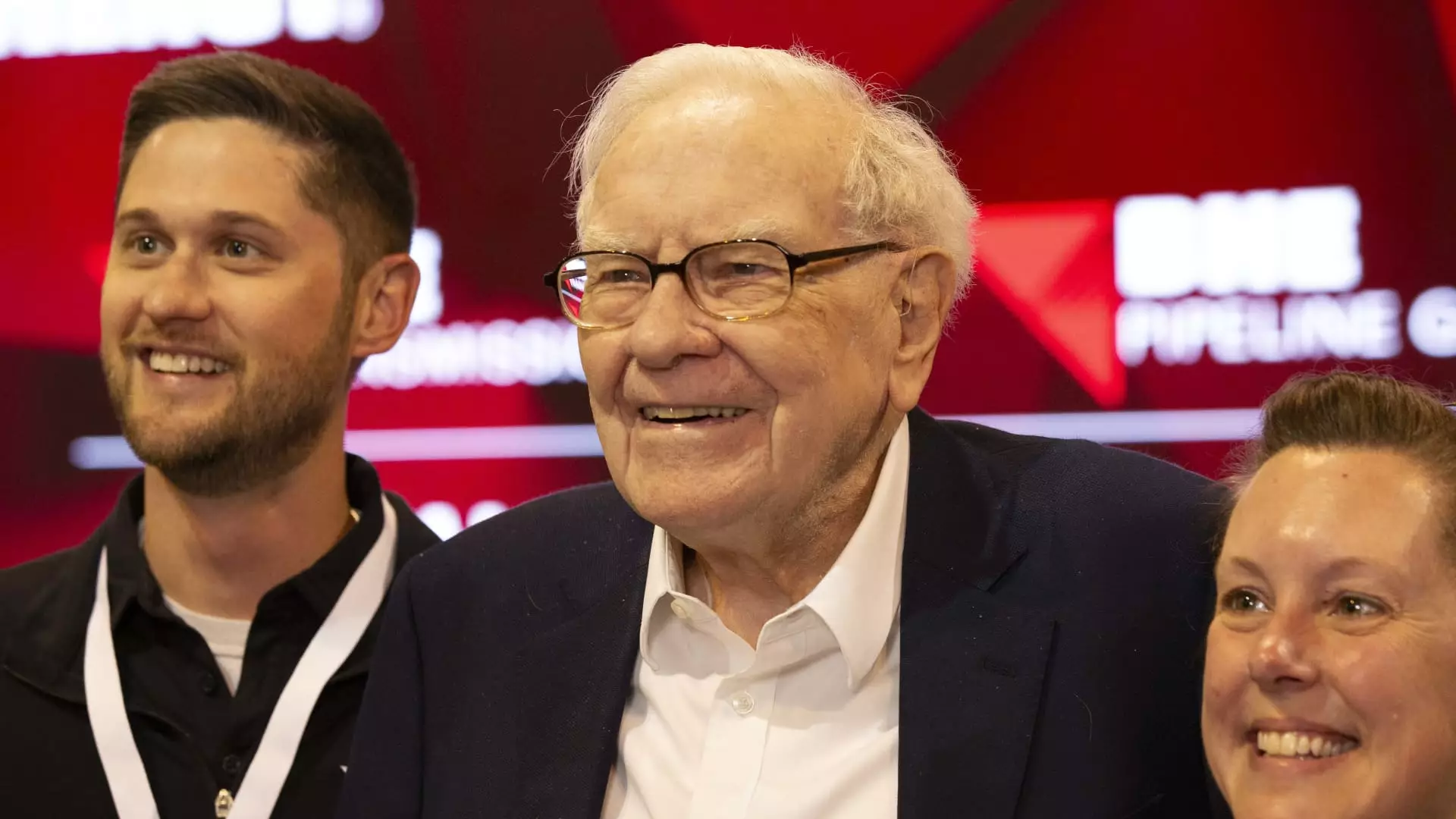Warren Buffett, the venerable CEO of Berkshire Hathaway, is expected to share his insights with shareholders, analysts, and admirers during his highly anticipated annual letter and earnings release. As the “Oracle of Omaha” prepares to address a captivated audience, there’s a palpable sense of curiosity surrounding his reflections on recent market upheavals, including escalating trade tensions, catastrophic wildfires, and Berkshire Hathaway’s own stock maneuvers. This article will delve into the multifaceted challenges facing Berkshire and the broader market, alongside expectations for Buffett’s insights.
The recent wildfires in California have raised pressing concerns about the financial ramifications for companies operating within the insurance domain. Although Berkshire Hathaway does not hold an extensive stake in California’s insurance market, its notable reinsurance operations could be significantly impacted by the fallout from these natural disasters. Analysts have projected that insured losses from the devastating wildfires could exceed an astonishing $40 billion, marking this as potentially the priciest wildfire disaster in U.S. history.
Industry experts, such as James Shanahan from Edward Jones, indicate that Berkshire’s reinsurance arm could face substantial financial strains as it takes on a portion of the mounting insurance claims resulting from the wildfires. Compounding these challenges, Geico, renowned as one of the leading auto insurers, is anticipated to encounter increased claims due to the wildfire’s destructive impact on vehicles and property in the affected regions. While some analysts predict manageable losses, the situation remains fluid, with stakeholders keenly awaiting detailed disclosures from Berkshire in its forthcoming earnings report.
Tariffs, particularly those imposed during President Trump’s administration, have developed into a contentious topic that could shape the trajectory of the U.S. economy. Buffett is known for his cautious views on tariffs, having previously labeled them as “a tax on consumers.” With the imposition of 25% tariffs on goods from neighbor countries like Mexico and Canada, in addition to ongoing tensions with China, the economic implications are significant. Investors will be closely monitoring Buffett’s remarks as he navigates the complexities of how these tariffs influence Berkshire’s portfolio companies and the broader market landscape.
The integrity of supply chains, particularly in industries reliant on imports like construction materials, has become increasingly vulnerable. Market participants are likely to look for Buffett’s views on whether these trade policies might stymie growth or drive inflation, further complicating the economic environment for consumers and businesses alike. His historical insights could provide valuable context for what lies ahead amidst shifting economic currents.
In a noteworthy deviation from his traditional investment strategies, Warren Buffett has been observed executing a series of stock sales, especially involving long-term holdings like Bank of America. Figures indicate that Berkshire Hathaway has maintained a patterns of selling stocks consistently for nine successive quarters, with its stock portfolio tilt now favoring cash hoarding rather than aggressive acquisitions.
This shift has fueled speculation regarding Buffett’s view on current market valuations, which might be seen as “expensive” or inflated. As Berkshire’s cash reserves swelled to a staggering $300 billion, questions abound concerning why Buffett, known for his opportunism in acquiring undervalued assets, is withholding significant investments in existing public companies or new ventures.
Analysts suggest that this mounting cash accumulation signals caution, potentially reflecting an overarching sentiment about economic uncertainty and inflated valuations within market segments. The circumstances prompt a convergence of thoughts regarding strategic timing and investment acumen.
Beyond immediate market conditions, Buffett’s thoughtful approach to succession planning is of paramount importance as he navigates the complexities of leadership transition. With Greg Abel being positioned as a potential successor, Buffett has taken proactive measures to streamline Berkshire’s operations, including acquiring the remaining shares of Berkshire Hathaway Energy and consolidating key partnerships. This positioning indicates a dedication to ensuring continuity in leadership and preserving the company’s legacy beyond his tenure.
As shareholders anticipate not only financial outcomes but also strategic shifts, Buffett’s remarks could shed light on the philosophical underpinnings guiding his decision-making process. As Berkshire Hathaway evolves in response to external challenges and internal shifts, stakeholder engagement will prove crucial in maintaining confidence within the conglomerate’s overarching mission.
Warren Buffett’s forthcoming address promises to unpack the dynamic landscape impacting Berkshire Hathaway and the broader marketplace, navigating themes of environmental crises, trade fluctuations, strategic cash reserve management, and future leadership. Amidst swirling uncertainties, his insights will undoubtedly provide a lens through which investors can gauge the trajectory of one of America’s most storied investment entities.


Leave a Reply